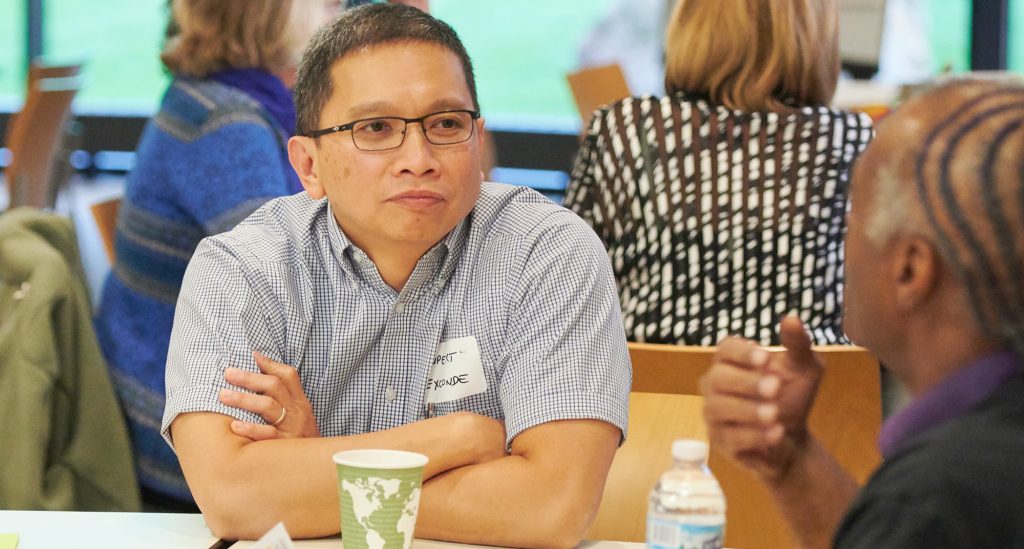The Diversity, Equity, and Inclusion (DEI) Committee helps us better serve communities of color, Native communities, individuals living with complex and rare epilepsies, and communities marginalized through social, economic, and political barriers as well as health care providers working most directly with these populations. Dr. Rupert Exconde is a member of our DEI Committee and Professional Advisory Board (PAB), and works as a neurologist at Noran Neurological Clinic.
Q: Why do you serve on the DEI Committee
RE: As an Asian physician, I look Asian and speak English with an accent. I cannot count the number of times when people of color come to my clinic and express relief when they see what I look like and hear me speak. They are relieved expecting that they will be able to share their concerns without being misjudged or misinterpreted.
Although a vast majority of these patients neither come from my native country nor speak my language, they feel more comfortable discussing epilepsy with someone like me who they trust will, without prejudice, listen to how and why they understand the disease as influenced by their cultures and beliefs. I believe that with my own personal experience as an immigrant who happens to be an epilepsy specialist, I can bring a different perspective as a member of the DEI Committee.
Q: What do you want people to know about epilepsy?
RE: Epilepsy is an equal opportunity disease. It does not discriminate based on age, gender, ethnicity, or socioeconomic status. From my perspective as an epileptologist, the evaluation and treatment of people with epilepsy should not be different because of age, gender, ethnicity, or socioeconomic status, either.
Q: What EFMN program or service do you want to highlight to someone who is new to the organization? Why?
RE: I would like everyone to know that the EFMN, through the DEI committee, and in partnership with the community, will continue and strive to highlight and ensure equity and inclusivity when caring for people with epilepsy.
Q: Tell us something about yourself that others may find interesting – either personal or professional, something that shows the audience who you are.
RE: My first experience with epilepsy was traumatic, to say the least. It was in the late 80’s. I was on night duty as a medical clerk in the internal medicine service. A code was called in the unit where I was assigned. I was the first responder since I was only a few steps away from the patient’s room. The scene was forever stamped into my cerebrum. There was this middle-aged diabetic double amputee who was convulsing, foaming in the mouth and cyanotic. My heart skipped and my brain froze since I did not know what to do.
Luckily for the patient, the nurses and medical residents arrived shortly and stopped the seizure. It was a mix of emotions for me. I was happy for the patient for being saved, proud and in awe of the medical team for saving the patient, and ashamed that I was not able to help. During debriefing after the code, the chief resident told me that I did right by waiting for the rest of the team instead of doing something that could have harmed the patient. His words continue to guide my medical practice to this day. I will always do my best to help my patients but first, I will do no harm.
